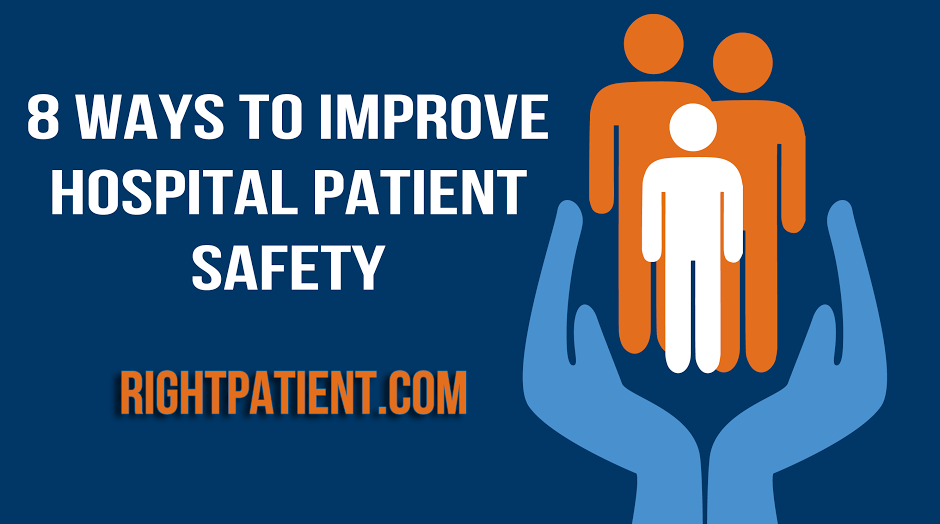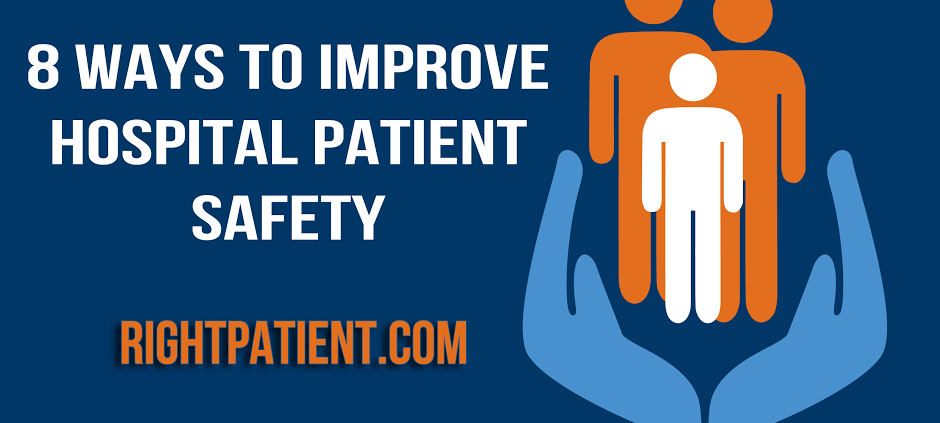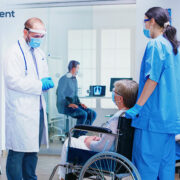8 Ways to Improve Hospital Patient Safety


Protect patient safety in healthcare by following these 8 simple steps.
The following gust post on patient safety in healthcare was submitted by Gracy Liura.
There are very few experiences in life that cause more anxiety than having to be admitted into the hospital.
Take Legal Measures Ahead of Time
Coming up with a plan of constraints, requests, and procedures ahead of time can challenging and might even seem impossible. Knowing what to prepare for and who is going to be in charge, should you become incapacitated, appears to be an overwhelming task with so many emotions that can impede logic. At the same time, almost all aspects of life require a certain amount of planning, especially in relation to medical care and hospitalization. At this point, you (and your spouse or chosen “next of kin”) should pay a visit to the local hospital and request copies of the paperwork that need filling out upon admittance. Every hospital in every region is going to differ, but some of these forms usually include the following:
• The Wishes—place a number before the word “wishes,” and then, this document might sound familiar. This form covers a broad range of issues or topics related to a stay in the hospital, including which difficult decisions will need to be made and by who. You might pick up a copy at your local hospital or healthcare facility to take with you for legal consultation. In other words you (and your spouse, if applicable) can discuss and fill out the paperwork and talk with a lawyer who can offer valuable advice about upholding your requests. More than likely, the document might have to be notarized.
• List of Visitors (including clergy or ministers)—usually, in the stack of forms, there is a section, if not one page, where you make a list of visitors who would be allowed in the room for just a short time and who you would wish to stay for a longer period beyond visiting hours, if allowed by the hospital. This also includes any pastors, clergy, and/or laypersons should you wish to have some spiritual support for yourself and your family.
• “Next of Kin”—this list is similar to the one that is previously mentioned, but applies more to an extreme emergency situation when a family member needs to get to the hospital quickly and possibly notify anyone else. Again, if this list and the list of visitors is established ahead of time, then there might be less chaos for you and whoever is in charge of notifications, which means less chance for a family conflict to erupt that distracts the staff away from quality patient care (not to mention disturbs the other patients).
• Power of Attorney and/or Guardianship—you will most definitely need to seek legal counsel when establishing who will have power of attorney or assume guardianship if you reach the point of losing all capacity to make important decisions. Normally, spouses would act on each other’s behalf, or one of the older (or most responsible) of the adult children would be designated for this role. For single, young adults, often a parent is asked to take on this job in the event of a severe medical episode. Either way, you should ideally talk with the person who you would like to fulfill those duties before speaking with an attorney and going through all the legal procedures to make sure that he or she is in agreement with you. After all, this is the person who will be in charge of some of the most difficult decisions concerning your care.
• List of “tasks” for immediate and extended family members—this document, if you wished to create such a document, probably has no legal bearing, but it would help to not just ask for help from loved ones but to specify what exactly you need—for example, someone to ask questions, someone to take your belongings home, someone to look after children during your stay, etc. Having an informal family meeting for the sake of discussing the “what if” scenarios and how to address them can help dispel some of the fear that goes along with being hospitalized.
Ask a Relative or Friend to Stay
No, you are not being a “coward” if you ask your spouse, significant other, parent, or even your best friend to stay with you for a night or two after your procedure. After all, you are still “coming out of” anesthesia while taking pain medication and would definitely need the immediate help to get out of bed if necessary.
Invoke the Help of Family and Friends as Witnesses
When you are ill or injured, the brain is frantically processing all sorts of stimuli—from the physical symptoms to the emotional impact. Thus, you might consider asking family and friends to “rotate in shifts” to stay with you and observe the care that the staff is giving and to be able to take notes and pose questions when the doctor checks on you. Also, you will need to consider that possibly only one to two visitors at a time would be allowed.
Meet with the Hospital’s P.R. Rep
If you are having a procedure scheduled ahead of time, then visiting with a public relations representative could result in gaining some valuable information about the hospital’s policies on visitors, shift changes (remember you will be dealing with multiple care givers) and other pertinent topics as well as to ask some questions of your own.
Protect Personal Belongings
In the event that you have to go to the Emergency Room, the person who takes you there should collect your personal items, like wallet, keys, and cell phone right away. If you are going to the hospital for a pre-scheduled surgery, then ideally, you will have already made arrangements with the family member or friend who accompanies you when you register. This is extremely important because most hospitals post their policy that they are not responsible for stolen or missing items.
Try to Stay Observant
When you are on medication or just not feeling well at all, keeping watch over your surroundings can be difficult. Nonetheless, during the waking hours, some vigilance would be beneficial. This is not to encourage paranoia, which would impede your healing and recovery, but just simply being coherent and maintaining communication with nurses and doctors can make a difference in the safety factor.
Become Ambulatory as Quickly as Possible
Getting on your feet is not just a matter of safety, but also an important factor in the recovery process. (Again, you should abide by orders from your doctor.) With help from a nurse, physical therapy assistant, or whoever is staying with you, you can periodically stand up and perhaps even walk around for a few minutes at a time. This will not only prevent fluid from settling in your lungs, it will also help you to get a look at your surroundings, specifically exits as well as to familiarize yourself with care givers and security staff.
Maintain an Updated List of Medications and Dietary Restrictions
It is important to adopt the practice of keeping a list of your prescriptions and supplements, any restrictions and allergies in your wallet for a number of reasons. Granted, if you are going into the hospital for a surgery that has been in the planning for a while, then you would have already provided that information upon pre-registering, but in the event of an unexpected illness, then having that information handy can mean the difference between life and death. A copy of this information should also be given to your designated helper (or spouse) in the event that you are not able to advocate for yourself.
Gracy is a dedicated and qualified nutritionist with over six years of experience in the Indian food industry, currently blogging at hCGdropsratings.com. On this website, she gives honest and detailed reviews on the world’s best HCG diet drops based on Google trends and Amazon, Ebay ratings. Gracy has earned a MSc degree in Human Nutrition at Chinmaya degree College (BHEL) in Haridwar, Uttarakhand. You can contact her any time you’d want if you’ve got any questions regarding her guest posts.









Leave a Reply
Want to join the discussion?Feel free to contribute!